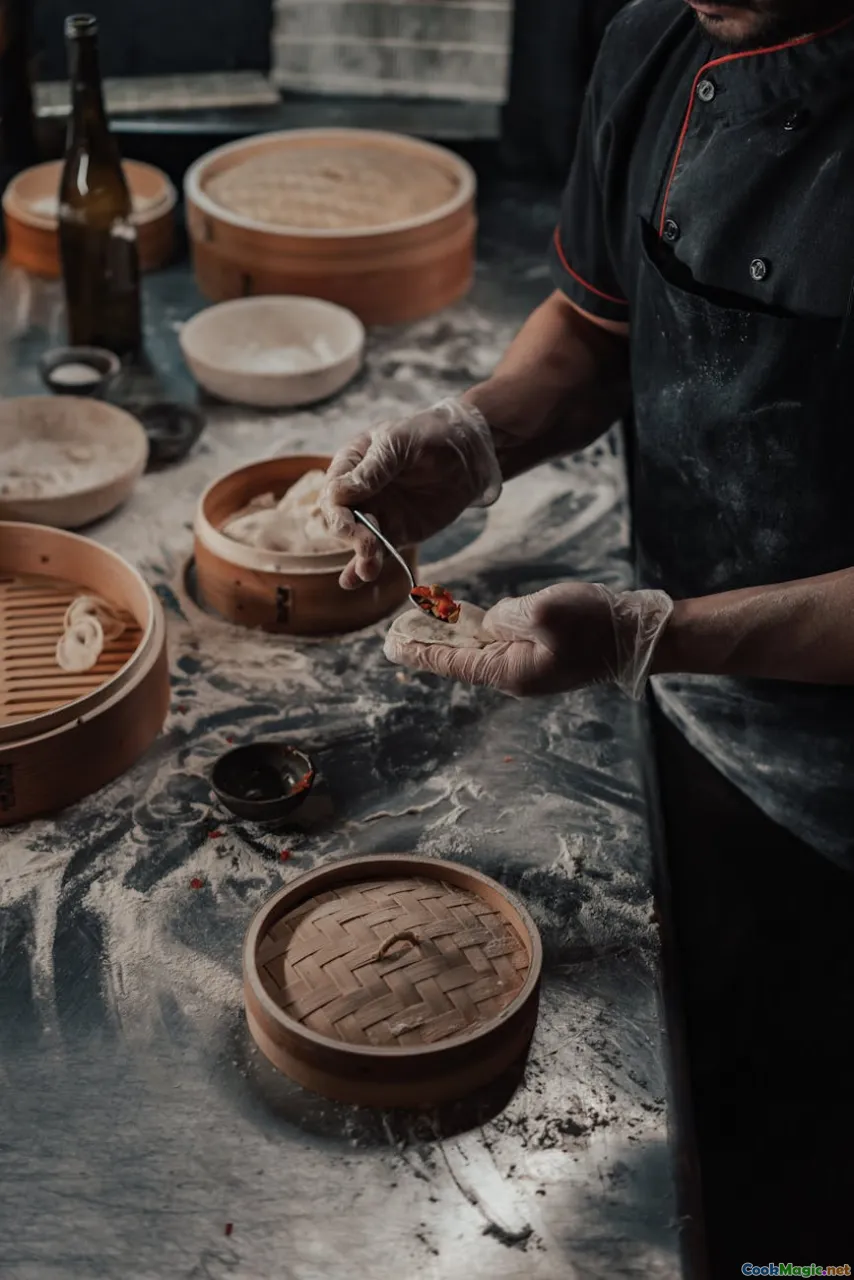Debunking Jamaican Food Stereotypes
8 min read Uncover the truths behind Jamaican food stereotypes, exploring its rich history, diverse flavors, and cultural depth beyond common misconceptions. May 06, 2025 15:00
Debunking Jamaican Food Stereotypes
When you hear the words "Jamaican food," what comes to mind? For many, it's the fiery jerk chicken, the sweet tang of rum punch, or perhaps the vibrant colors of a roadside jerk stand. These images, while rooted in reality, often oversimplify a rich and complex culinary tapestry that is much more than the stereotypes that have become popular abroad. As a food writer with a deep love for global cuisines, I’ve had the privilege of exploring Jamaica’s diverse food landscape firsthand, and I can tell you—there is so much more beneath the surface.
The Origins of Stereotypes in Jamaican Food
Many stereotypes about Jamaican cuisine stem from its international popularity and media portrayals. The fiery jerk seasoning, for instance, has become synonymous with Jamaica itself, often depicted as the defining aspect of its culinary identity. While jerk is indeed a distinctive and beloved cooking method—smoking meat with a blend of spices over pimento wood—it is merely one thread in the fabric of Jamaican food.
Similarly, the association of Jamaican cuisine solely with spicy, hot flavors tends to overlook the nuanced balance of tastes that define its dishes. This narrow view is often reinforced by tourist-focused outlets that prioritize quick, spicy fare over the depth and diversity of authentic local cooking.
The Rich Cultural Tapestry Behind Jamaican Food
Jamaican cuisine is a reflection of its complex history—African, European, Asian, and indigenous influences all intertwine to create a culinary mosaic. The island’s indigenous Taino people initially cultivated crops like yam, sweet potato, and cassava, which still form the backbone of many traditional dishes.
African slaves brought techniques such as marinating and seasonings, which evolved into the bold flavors we associate with jerk and pepper sauces. European colonizers introduced baking methods, dairy products, and sugar, shaping desserts and baked goods. Meanwhile, Indian indentured servants brought spices like turmeric, cumin, and curry, adding depth and warmth to Jamaican curries and stews.
This multicultural heritage is vividly reflected in dishes like curried goat, callaloo, escovitch fish, and pepperpot soup—each telling a story of migration, adaptation, and resilience.
Beyond Jerk: A World of Flavors
While jerk chicken and pork are iconic, Jamaican cuisine boasts an astonishing variety of flavors and textures. For example,run down(orrundown) is a savory, coconut milk-based stew often made with salted fish, plantains, or seafood, offering a rich, creamy flavor that is both comforting and complex.Ackee and saltfish—Jamaica’s national dish—is a perfect example of the island’s culinary ingenuity. The delicate, buttery texture of ackee paired with salted cod creates a harmonious blend of savory and subtly sweet flavors, topped with sautéed onions, tomatoes, and Scotch bonnet peppers.
Desserts like gizzada(coconut tart) andjelly made from tropical fruits showcase Jamaica’s sweetness and love for vibrant, tropical ingredients. These dishes highlight the island’s bountiful produce and its mastery in transforming simple ingredients into culinary treasures.
Debunking Common Myths
Myth 1: Jamaican Food is Always Spicy
While Scotch bonnet peppers pack serious heat, not all Jamaican dishes are fiery. Many recipes balance heat with sweetness, acidity, and herbs. For instance, pepper shrimpmay have a spicy kick, but dishes likerice and peasorcallaloo are mild and herbaceous.
Myth 2: Jamaican Food is Solely About Jerk
Jerk is famous worldwide, but Jamaican cuisine is wide-ranging. From hearty stews and seafood to vegetarian dishes and street snacks, the culinary palette is remarkably diverse.
Myth 3: Jamaican Food is Fast Food
While street food is prominent, traditional Jamaican cooking often involves slow, deliberate processes—marinating meats for hours, smoking over pimento wood, and slow-simmering stews. This depth of preparation contributes to the complexity of flavors.
Myth 4: Jamaican Food is Only for Tourists
Authentic Jamaican cuisine is deeply rooted in local communities. While tourism has popularized certain dishes, the true flavors are found in family-run eateries, local markets, and home kitchens.
Personal Encounters and Cultural Insights
During my travels in Jamaica, I’ve had the chance to dine with locals in small villages and bustling Kingston markets. One memorable experience was sharing a plate of fried dumplingsandsaltfish fritters with a vendor who explained how her grandmother’s recipes have been passed down through generations.
The pride and care that local cooks put into their food are palpable. They see their dishes not just as sustenance but as a vital part of their cultural identity—stories told through ingredients, techniques, and flavors.
The Future of Jamaican Cuisine
As global interest in authentic, diverse cuisines grows, Jamaican food is gaining recognition not just for jerk or patties but for its culinary depth. Chefs worldwide are experimenting with traditional ingredients, creating fusion dishes that honor the island’s heritage while appealing to modern palates.
At the same time, Jamaican cooks and food enthusiasts are working to preserve traditional recipes and cooking methods, ensuring that future generations can enjoy the true essence of their culinary heritage.
Conclusion: Celebrating the Complexity of Jamaican Food
Debunking stereotypes about Jamaican cuisine involves recognizing its historical roots, cultural diversity, and the artistry behind each dish. It’s about seeing beyond the fiery jerk and embracing a world of flavors that reflect a nation’s resilience, creativity, and soul.
So, next time you indulge in Jamaican food or see it on a menu, remember—it’s a vibrant story on a plate, constantly evolving yet deeply rooted in tradition. Celebrate its richness, its history, and its diversity. Because Jamaican cuisine is much more than a stereotype—it's a culinary legacy worth exploring.
Embark on your own flavorful journey and discover the authentic, multifaceted world of Jamaican food. It’s time to taste beyond the stereotypes.









